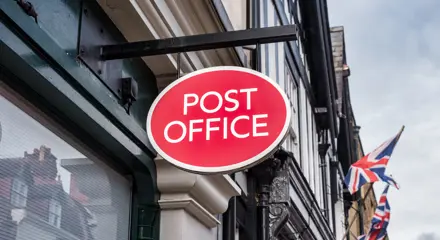

Blog
From OpenAI to Anthropic: who's leading on AI governance?
OpenAI CEO Sam Altman says the future of artificial intelligence depends on “good governance”, but what does that mean in practice? This blog explores how different AI giants such as Anthropic, Google and Meta are approaching ethics, oversight and accountability, and what it all means for governance professionals.



Blog
Why cybersecurity is the new governance frontier for non-profits
In the wake of recent cyberattacks on high-street names such as M&S and Co-op, it’s increasingly clear that no organisation is safe from cybercrime. But while major retailers often have the resilience to absorb such crises, membership bodies and not-for-profit organisations face a far greater set of vulnerabilities.

Blog
2025 Annual Lecture
On 1 May 2025, the prestigious CGIUKI Annual Lecture was held at the London Business School. The lecture brought together senior governance professionals including the Chartered Governance Institute’s Global Council, the Institute’s board, and distinguished friends of the Institute to explore one of the most vital qualities in board leadership: independent judgement. The discussion was led by our esteemed speaker Sir Andrew Likierman.

Blog
The Governance Crisis at Prince Harry’s Charity
The Duke of Sussex vowed never to walk away from Sentebale, the charity he created in 2006, at the age of 21, in memory of his late mother, Diana, Princess of Wales, but this week he resigned as a Patron, following a breakdown in boardroom relations during which all trustees but one resigned. The incident has generated significant press coverage, which was fed by a number of public statements made by the different parties to the dispute.

Blog
Analysis of the Chancellor’s Spring Statement March 2025
It isn’t easy being the Chancellor of the Exchequer in 2025. The Chancellor is restrained by two devices created by former Chancellors to reassure the markets. The first device is Gordon Brown’s “Golden Rule”, (the rule that says the current budget should balance) which was created to help New Labour win the 1997 election. The second device is the Office for Budget Responsibility, created by George Osborne in May 2010 to take economic forecasting out of the hands of optimistic politicians and put it into the hands of pessimistic economists.


Blog
Was there a governance failure as well as a power failure at Heathrow Airport?
Electrical power has been restored to Heathrow Airport, but fixing the governance problems which underlay the crisis will take much longer. Daniel Valentine suggests that Friday’s emergency shutdown of Heathrow raises serious questions about both the governance of the UK’s energy infrastructure, and decision making by airports, and provides lessons for all organisations.

Blog
The Company Law Review Group
The Company Law Review Group is an expert advisory body charged with advising the Minister for Enterprise, Tourism and Employment on the review and development of company law in Ireland. It was accorded statutory advisory status by the Company Law Enforcement Act 2001, which was continued under Section 958 of the Companies Act 2014. The CLRG operates on a two-year work programme which is determined by the Minister in consultation with the CLRG.

Blog
How to improve board performance
Boards really matter. A successful board of directors adds significant value to an organisation and its stakeholders. Good boards do not happen by accident. Nor does board effectiveness last indefinitely. Many boards don’t achieve their potential because they remain collections of individuals and never form into a team.
